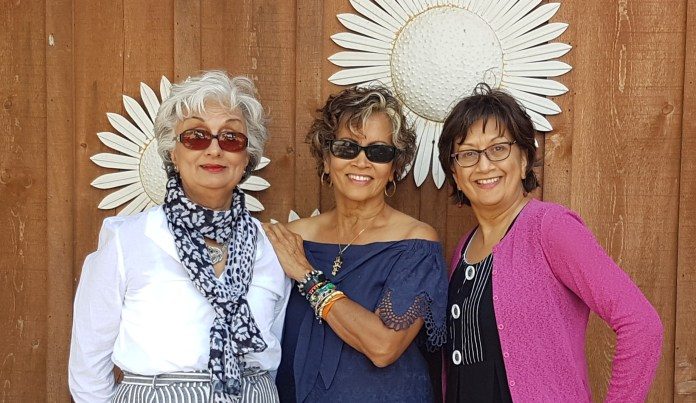We have the wonderful privilege of sharing with you this fabulous Alzheimer’s Q&A. It is being shared to you by Geeta, as mentioned in one of our previous articles (found here). We hope that you find it useful and informative!
Q&A:
- What convinced you that getting tested for a potential risk of Alzheimer’s was something you should do? Was there a tipping point?
When my mum was diagnosed with Alzheimer’s, our family went through a lot of ups and downs. At the time, when we were in the thick of scrambling, it was all about getting stuff done – the schedule for sleeping over, cooking, her meds, her care, or whatever emergency was happening. We had a lot of family meetings, some with the Alzheimer Society of Toronto. At the time, there was no time to think about how the disease could or would affect me – or any of us down the line. I guess you pack that away for later.
In the five years since Mum died — the thoughts of I wonder if, and what will I do if, and what am I prepared to accept for myself and who will help me – have all crept back into my mind. Some of us have carried these thoughts privately, and others have discussed it openly with family members and friends.
I am single. No kids. But I do have beautiful, kind, generous siblings –- all older than me – and they have daughters and sons who are just as caring. But after the experiences with Mum, I knew a potential Alzheimer’s diagnosis was not a burden I could knowingly unload onto anyone, especially them. I jokingly tell my siblings they’d better be kind to me as I’ll likely be taking care of them!!
A couple of years ago, I came to the point of being ready to know. At my annual checkup, I steeled myself to ask my general practitioner for a test. But I was told there wasn’t one.
So was there a tipping point? Yes, a vague one that had been lurking in the back of my mind since Mum died, came into clear view when I was free to ponder the situation. I just knew that I wanted to do all I could to avoid the same situation Mum went through, and I knew you have to set things up as best you can, because when you’re in that Alzheimer’s caregiving fog, the only thing you’re capable of is managing yourself, and learning to cope.
- Why was a memory test important? And what doubts did you harbor before you got tested?
Here’s my take on Alzheimer’s: at its worst, it’s a wacky, weird, soul-sucking disease. It comes in waves and in many forms: being a violent patient, verbally abusive, catatonic or sweet and kind. Maybe you’ll remember the past, maybe you won’t. Maybe Groundhog Day will be your reality. There’s really no upside that I’ve been able to find.
Working from that place, for me, it’s important to have some idea of what’s coming, so if there’s a way of knowing, I’m signing up.
Doubts? There were, and still are, many. All the disturbing what if’s jockey for position in your brain. But the alternative is to have no clue and just wait for the outcome. The problem is, your mind doesn’t stop thinking about it. It keeps wondering and worrying and building up a crippling mountain of doubt and fear. And when you’ve been closely involved with an Alzheimer’s patient, there’s no un-knowing how bad it can be.
- What did it feel like to make the decision and to go to the Toronto Memory Program for an initial screening?
As the date approached, I started getting butterflies in my tummy. I thought to myself, “OK, so it was a good decision but what if the results are awful?” Ultimately, I decided I needed to know what I was dealing with, so if it was terrible news, I had a path to take. If it were middling news, then another path. At least I could end the haunting uncertainty and move forward.
- What tests did you undergo?
The first test was a quick in and out visit for the cheek swab. It took more time to fill out the form than for the actual swab. I think I was there for 15 minutes total.
- What was it like to be there, and were the tests just what you expected?
The building was easy to find and had free parking which is a rare convenience in Toronto. I was told by my sisters and friends who’d had the swab test that it was literally quick and easy, and I didn’t believe it, really. But it was. You open your mouth, the lovely person puts a sterile swab (like a Q-tip) along the inside of your cheek, and you’re done. Just like in an episode of “CSI”! Then about three weeks later, I got a call to book an appointment with a doctor to get the results.
I was also given the option of arriving 30 minutes earlier for a quick memory test. This is a timed test – drawing things, identifying animals – nothing horrendous — to check your memory and your ability to answer some pretty normal questions. I saw this as a good benchmark of where I am today, and good information to share with my GP.
- Was it daunting? Were you hesitant?
The cheek swab wasn’t daunting at all. Though I have to admit, it was a bit of a gut check. “Okay, kid, this is it,” I thought. “You asked for this, you got it.” You can’t un-know the results. But I refused to allow those thoughts to stop me.
During the memory test I was a little anxious. Likely it was more the idea of a test that made me uneasy. I did well in some areas, and not so well in others. You get the results right away, and it’s recommended that you share them with your doctor – again a good benchmark.
- What advice would you give to others contemplating finding out their risk?
Some of my siblings aren’t going to get the swab and have no desire to know the results. Others are in the same place as I am. Independent of each other, and before hearing about the Toronto Memory Program, we had each decided we needed to know more. Taking the cheek swab was a good next step for us all, and totally a good benchmark for each other.
- What are the next steps for you and your sisters?
My cheek swab results did not detect a gene that could indicate an elevated risk of Alzheimer’s, and doctors did not suggest any further studies or testing were needed at this time. Some of my sisters are currently enrolled in other studies on potential treatments or preventions. Due to the results of my memory test, I was pointed toward some books to help me improve and enhance my memory. I honestly haven’t read them yet, and while I do plan to get to them eventually, I prefer, just for a moment, to enjoy a brief moment of relief.
For more information about memory screenings, Alzheimer’s treatments, care, support for caregivers, and a robust pipeline of clinical trials, contact the Toronto Memory Program at (416) 386-9761. The web addresss is www.torontomemoryprogram.com.
























